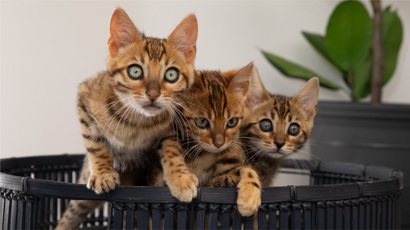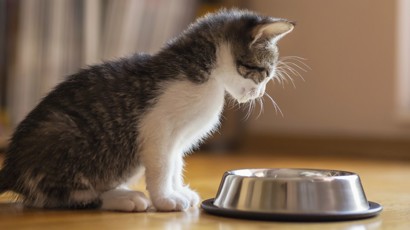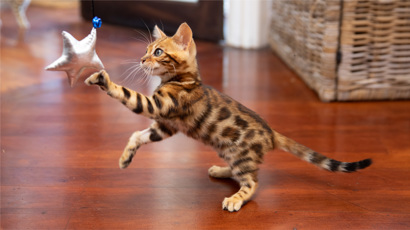Welcoming a Kitten into your Family
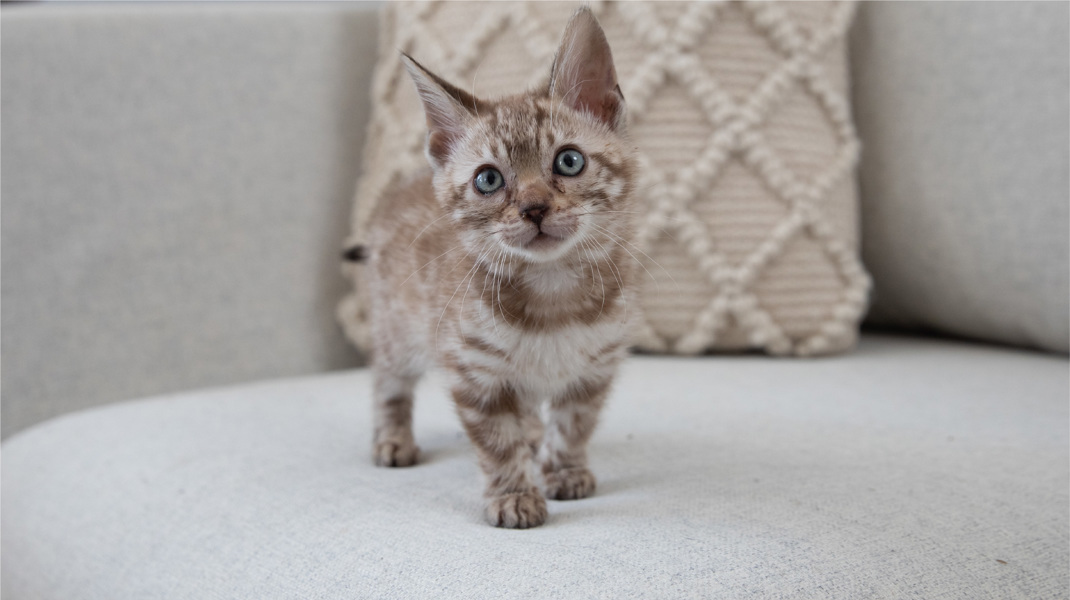
A kitten is a friend for life and finding the one that’s exactly right for you can be difficult when the cute factor is high.
Choosing your first kitten can be difficult – the cute factor is extremely high. For me, it began with rows of possibilities at the RSPCA and ended in front of a cage containing six delightful balls of fluff.
Five were at the door vying for my attention, their endearing little faces seeming to say “pick me, pick me!” amidst a cacophony of mewling. At the back of the group, watching me carefully with big yellow eyes, was the sixth kitten. He was a quiet little guy, not taking any part in the frenzy, an ugly mix of brown grey and with huge paws that seemed oddly out of proportion to his tiny body. However, he had a quiet dignity. He would not beg.
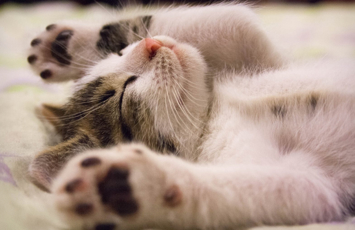
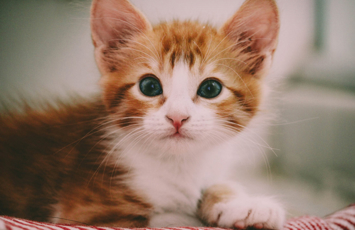
“He’s so ugly,” a woman beside me said. “He’ll never get a home – the others are all so cute.” Half an hour later, the ugly underdog was in a cardboard carry box in the car beside me. I named him Dino and it turned out he did have a few canine-esque characteristics.
Kitten considerations
Kittens are growing by the second, and change day-by-day when they’re young. Development stages include the neonatal period for the first few weeks, then a transitional followed by socialisation or ‘sensitive’ periods in which spending time with other cats and kittens, dogs, other species, humans and in different environments is key.
Thereafter an adult cat will spend a lot of their time ‘managing’ their environment (including you!) to ensure ongoing access to resources and a stress-free existence. This involves access to essential kitten food, water, shelter and safety from harm, but also the ability to ‘be themselves’. This means behaving in a way that cats naturally like to behave. When overly restricted or curve-balls are thrown their way, cats can often become stressed. You’ll learn to recognise when they’re most comfortable though, and link this to changes in their environment.
Age
A kitten should be around eight weeks old when you purchase or adopt it, but preferably 9-12 weeks so they have fully transitioned to eating solid food (likely both dry and wet kitten food), has being well socialised with their siblings and mother. They will also have had time to develop a healthy immune system. During these early months, it’s important that you’re by their side as they adapt to their new home, so be sure to be available and free to spend time at home during this period.
Coat
Even with regular grooming, all cats shed hair. It’s a natural part of the hair growth cycle. Get any kitten used to being brushed from a young age by means of gradual introduction of first a soft brush, then a harder one which will be ideal as they and their coat thickens and moults with each season. It’s good to have them exposed to the sensation of having a brush drawn through their coat at an early age, and some cats can even grow to love the massage it gives, and the contact time with their humans.
Brushing helps prevent hairballs, controls shedding to a degree, and is a great way to bond with them. Long-haired cats require more of a commitment, and brushing as frequently as daily is a good idea.
Breed
Moggys (sometimes referred to as Domestic Short-, Long- or Medium-haired) are most common, but if you have your heart set on a pedigree cat, research the breed you like, talk to as many fellow owners and breeders as you can and ideally even visit them before making a decision. Depending on the breed, there may be a waiting list and you may need to wait a while before a kitten becomes available.
If you are going to call upon breeders or cat owners, it’s best you do so on separate days, wearing clean clothes and shoes so you don’t risk spreading disease.
Questions to consider and health checks you can keep in mind
When buying, adopting or rescuing a kitten, it’s a good idea to explore all angles. The following prompts will lead to some important conversations and uncover many of the individual quirks or concerns of the breed you’ve chosen, or the individual you have your eye on:
- Does the kitten’s parents or breed have any inherited tendencies or health conditions, for example, some flat-faced breeds can have eye issues. Have they been vet-checked or had health testsDoes the kitten have clear eyes, a slightly damp nose, no-smell when sniffing theirears ( with no dirt or discharge)?
- Do they have a clean, shiny, odourless coat (with no black flea ‘dirt’, ticks or mites)? Is it free of scrapes or sores or patchy skin
- Do they have a clean bottom (no sign of diarrhoea or sores)?
- Are they bright and alert in nature? Moving well and responding to the world around them?What flea and worming regime does the breeder/rescue shelter use, and what treatments has the kitten had?
- Has the kitten had any or both their vaccinations, and a certificate to accompany them?
- What food(s) are they eating (brand, flavour, format, meal volume and meal times)?
- What cat litter are they used to (eg crystals, pellets, clumping, scented), and in what type of litter tray?
- Can you meet the mother cat (to see what her temperament is like)?
- How much handling has the kitten had, especially during their early sensitive period? Their first few months of life is a critical period for ‘creating’ a stress free, adaptable and stress-free cat.
- What specific socialisation have they had? For example, have they met dogs or other adult cats? Children? Visitors to the house?
All of these considerations may sound daunting at first, but the more you prepare for this new addition to your household, the greater your (and their) confidence once they are yours. Having a cat as a companion is a true gift, and there are many fun times ahead!
